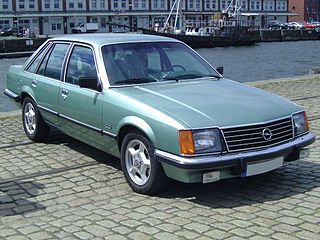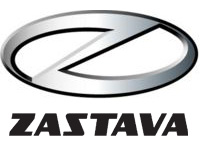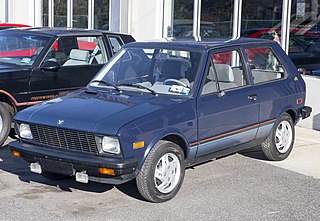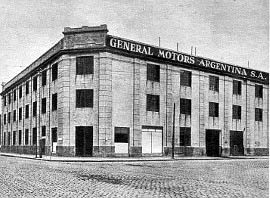
Opel Automobile GmbH, usually shortened to Opel, is a German automobile manufacturer which has been a subsidiary of Stellantis since 16 January 2021. It was owned by the American automaker General Motors from 1929 until 2017 and the PSA Group prior to its merger with Fiat Chrysler Automobiles to form Stellantis in 2021. Most of the Opel lineup is marketed under the Vauxhall brand in the United Kingdom since the 1980s. Some Opel vehicles were badge-engineered in Australia under the Holden brand until 2020, in North America and China under the Buick, Saturn, and Cadillac brands, and in South America under the Chevrolet brand.

Vauxhall Motors Limited is a British car company headquartered in Chalton, Bedfordshire, England. Vauxhall became a subsidiary of Stellantis in January 2021, having previously been owned by General Motors since 1925.

The Opel Kadett is a small family car produced by the German automobile manufacturer Opel from 1936 until 1940 and then from 1962 until 1991, when it was succeeded by the Opel Astra.

The Opel Ascona is a large family car that was produced by the German automaker Opel from 1970 to 1988. It was produced in three separate generations, beginning with rear-wheel-drive and ending up as a front-wheel drive J-car derivative. The Ascona was developed to fill the gap in the Opel range as the Opel Rekord was gradually growing in size.

The Opel Senator is a full-size executive car (E-segment) produced by the German automaker Opel, two generations of which were sold in Europe from 1978 until 1993. A saloon, its first incarnation was also available with a fastback coupé body as the Opel Monza and Vauxhall Royale Coupé. The Senator was, for its entire existence, the flagship saloon model for both Opel and Vauxhall.
Getrag, stylized as GETRAG, was a major supplier of transmission systems for passenger cars and commercial vehicles. The company was founded on 1 May 1935, in Ludwigsburg, Germany, by Hermann Hagenmeyer; as the Getriebe und Zahnradfabrik Hermann Hagenmeyer GmbH & Cie KG.

Erich Bitter Automobil GmbH (Bitter) is a premium sports-luxury automobile marque produced in Germany and later Austria. Founder Erich Bitter (1933-2023), a then retired racing driver turned automobile tuner, importer and ultimately designer began crafting his own vehicles after business ventures with Italian manufacturer Intermeccanica ended.

Irmscher Automobilbau GmbH & Co. KG is a German car tuning and manufacturing company, specialising in Opel, Peugeot and Kia vehicles as well as working for the complete automotive industry as an engineering service provider.

General Motors Europe was the European subsidiary of the American automaker General Motors ("GM"). The subsidiary was established by GM in 1986 and operated 14 production and assembly facilities in 9 countries, and employed around 54,500 people. GM's core European brands were Vauxhall and Opel, which both sell much the same range of cars in different markets. GM also owned the Swedish brand Saab until early 2010 and sold Chevrolet models between 2005 and 2015. The U.S. brand Cadillac is imported into Europe in small quantities. In 2009, General Motors (GM) announced to move its European headquarters from Zürich, Switzerland to Rüsselsheim, Germany to strengthen its German subsidiary Opel.

Opel Performance Center (OPC) was a division of the German automobile manufacturer Opel, initially set up as a subsidiary in 1997. The main focus of OPC is the development of performance derivatives of the Opel range, such as the hot hatch Corsa OPC and Astra OPC.

General Motors India Private Limited was a subsidiary of General Motors for its operations in India. General Motors had 93% stake in this partnership and the remaining 7% was held by SAIC. It was the 5th largest automobile manufacturing company in India after Maruti Suzuki, Hyundai, Tata Motors and Mahindra. After 21 years of operations in India, General Motors ceased selling cars in India by the end of 2017 as a part of its global restructuring actions.

The automotive industry in Germany, is one of the largest employers in the world, with a labor force of over 857,336 (2016) working in the industry.
This article provides an overview of the automotive industry in countries around the world.

Opel Eisenach GmbH is a German manufacturing company based at Eisenach in Thuringia, Germany and a subsidiary of Opel. It currently produces the Opel Grandland.

Vauxhall Ellesmere Port is a motor vehicle assembly plant, located in the town of Ellesmere Port, in Cheshire West & Chester, United Kingdom. It has always built small/medium Vauxhall/Opel vehicles, including the Vauxhall Viva and Opel/Vauxhall Astra. It is owned by the global car manufacturer Stellantis.

Zastava Automobiles was a Serbian international car manufacturer, a subsidiary of Group Zastava Vehicles which went bankrupt in May 2017.
Serbia's automotive industry is one of the most important industrial sectors and makes about 15% of industrial output of the country and 18% of all exports.

Yugo is the common name used for the Zastava Yugo, later also marketed as the Zastava Koral and Yugo Koral. Originally introduced as the Zastava Jugo 45, various other names were also used over the car's long production run, like Yugo Tempo, Yugo Ciao, or Innocenti Koral. It was most commonly marketed as the Yugo 45/55/60/65, with the number referring to the car's maximum power. In the United States it was sold as the Yugo GV. It is a subcompact hatchback manufactured by Zastava Automobiles from 1980 until 2008, originally a Yugoslav corporation.

General Motors de Argentina S.R.L. is the Argentine subsidiary of the US-based company General Motors. The company is currently headquartered in Vicente López, Buenos Aires, with its factory located in Alvear, Santa Fe Province.

General Motors (Thailand) Limited (GMT) was a holding company of sales and manufacturing subsidiaries of General Motors (GM) in Thailand.





















